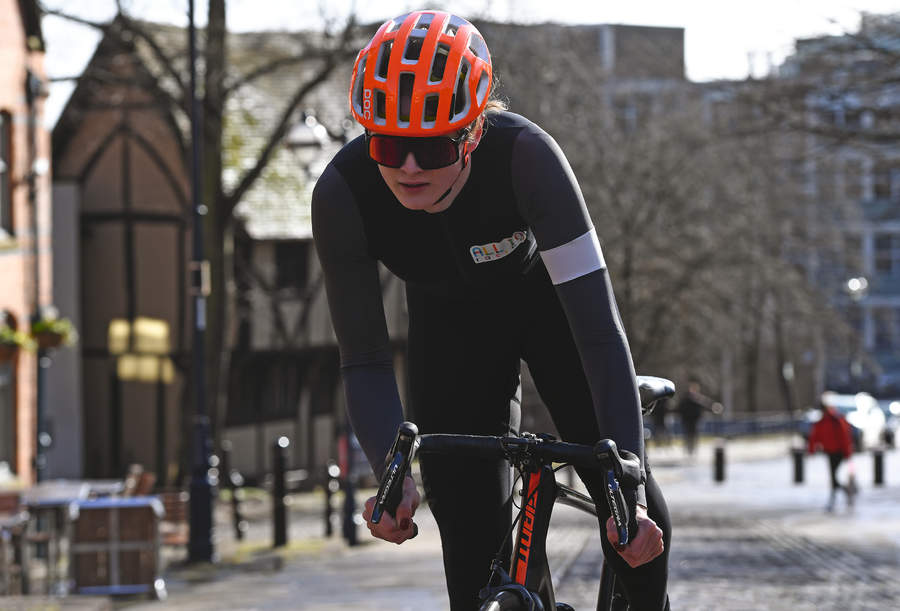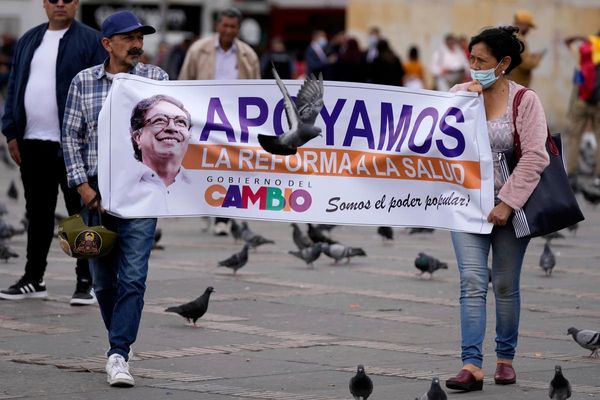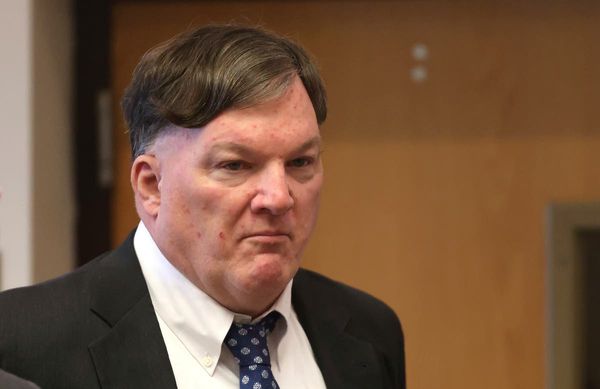
Emily Bridges, Britain’s most high profile transgender cyclist, has said she feels British Cycling violated her human rights by barring trans women from female events.
In a wide ranging interview with ITV Sport, published on Tuesday afternoon, Bridges said that she has all but given up on ever being able to compete in elite sport again due to now being unable to ride in any women’s events.
"It’s not something I allow myself to think about too much because that part of my life is gone now, and it’s not something I really want to do anymore," Bridges told ITV.
"If we were allowed to compete, if I was allowed to compete, it would be a different conversation," she added, "but I can’t compete…I can’t do something I used to love."
Under a new participation policy issued by the national federation last May, trans women are now only able to compete in the "open" category alongside male athletes.
At the time of the announcement, British Cycling CEO Jon Dutton said that “fairness” was the key driving factor behind the new policy.
“Our new policies are the product of a robust nine-month review process which we know will have a very real-world impact for our community both now and in the future,” Dutton said. “We understand that this will be particularly difficult for many of our trans and non-binary riders, and our commitment to them today is twofold.”
Bridges later labelled the new policy as a “violent act” and according to ITV, she is now prepared to go to the European Court for Human Rights to challenge the participation rule change.
"I don't care if I never compete again. It's for other people who want to compete and it's just about what's right," she said.
“Yes, I think they have,” she said when asked whether her human rights have been violated.
After reviewing its own transgender participation policy, the UCI also followed suit and issued a similar policy to that of British Cycling.
Despite British Cycling emphasising that trans athletes were still able to compete in its open category, Bridges insisted that she had been banned from elite sport by the national governing body.
"A ban is a ban. You can say you can compete in the open category, but we’re women - we should be able to race in the women’s category," she said.
Bridges insisted that it was not safe to compete alongside men and that she disliked the idea of riders having to officially come out in order to compete in the open category.
“Obviously I have a past in cycling, I have previous results and people know me,” she said. “But for another trans woman who hasn’t competed in the past, she’s trans but is seen by the world as a cis woman, how is it fair to ask her to out herself and compete in the open category? That’s not fair and it’s not safe either.”
BC’s previous testosterone-based trans participation policy was suspended by the national federation in April 2022 pending a full review, before a decision was reached.
The governing body said its current policy was generated after a research and consultation process by an internal working group that also involved a full medical science review.
BC said that it took advice from sports and equality law firm Mills and Reeve. According to the organisation, the review process was also independently audited to “confirm the strength of its governance”.
However, Bridges disputes the peer-reviewed studies used by British Cycling that state that trans women who have reduced testosterone levels retain a performance advantage after puberty. She herself has taken part in a study conducted by Loughborough University.
“How many of those studies are done on athletes?” she said. "I have been part of a study, and the data will be coming out soon, and opponents of my inclusion have been trying to discredit all of the data."
A British Cycling spokesperson said: “Our revised policies have been designed to safeguard the fairness of cycle-sport competition, while continuing to ensure that all riders have access to welcoming and inclusive opportunities to participate."







